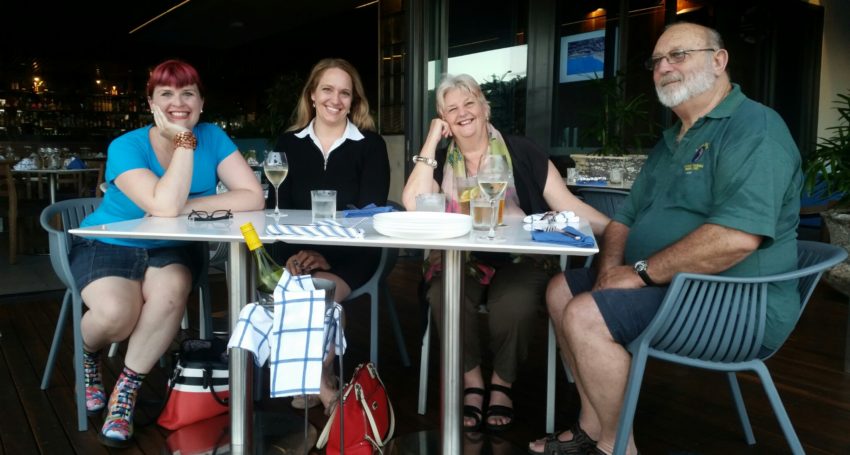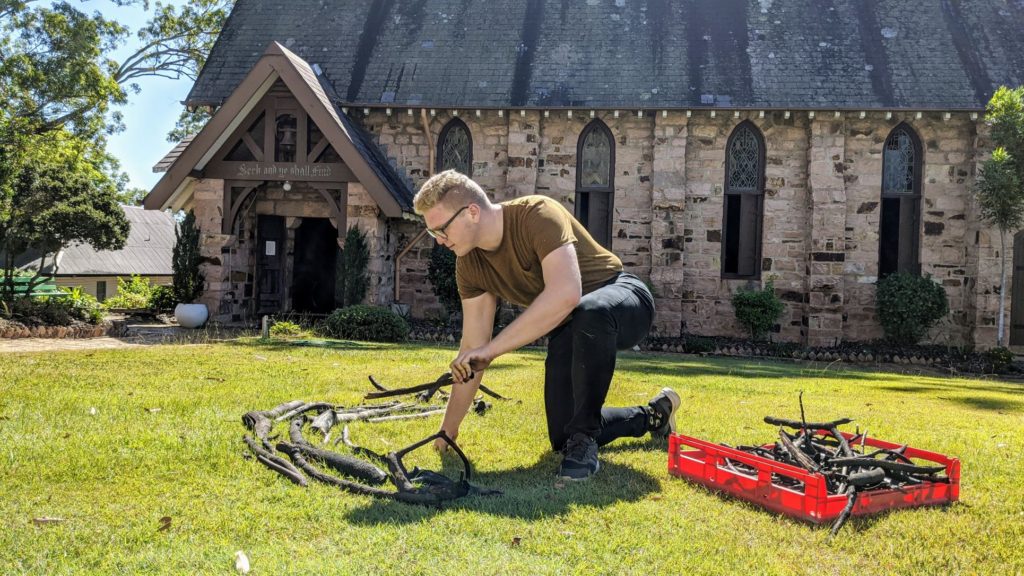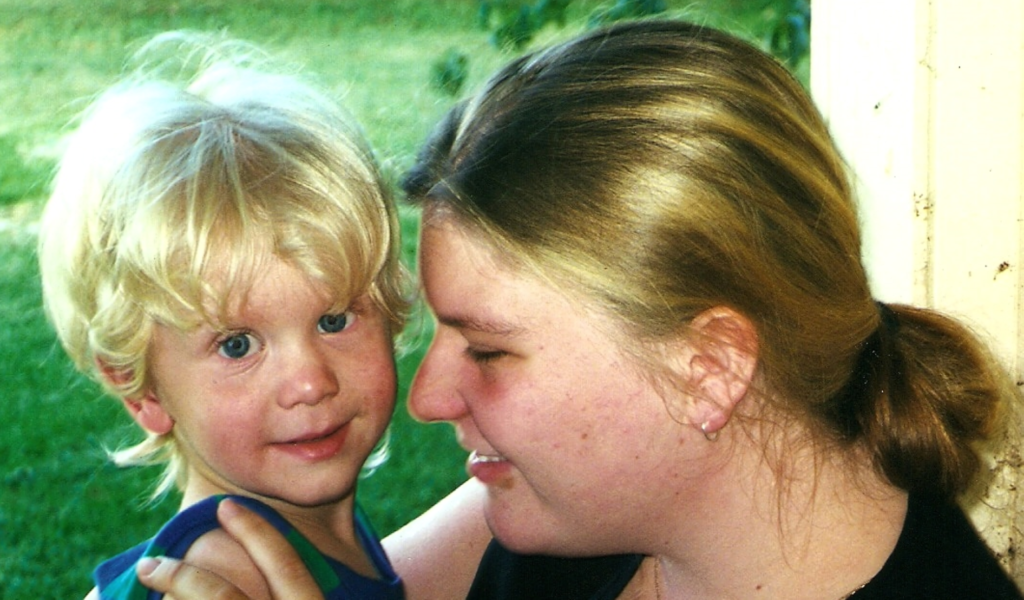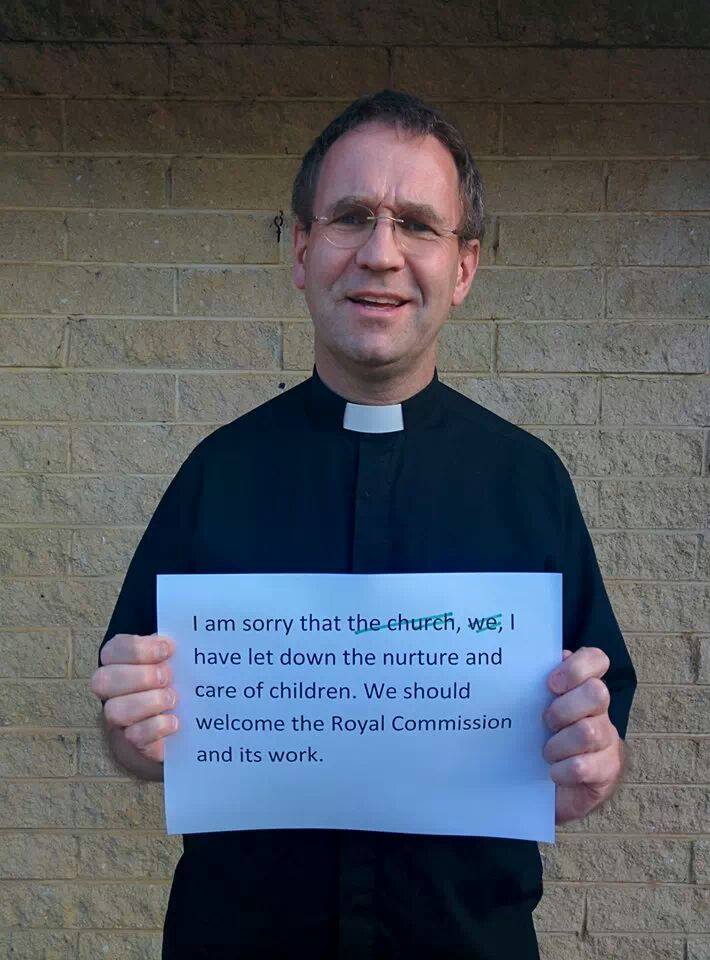Collaboration as solidarity
Features
When I think about collaboration as solidarity, I often think back to the moment when I found out that I was pregnant with my wonderful son, Tom. I was 15 and what I thought my life would be, changed in an instant. I was left somewhat reeling at a time when teenage mums still experienced significant social stigma…However, the solidarity of family members, friends and churched people shielded and carried me,” says The Ven. Tiffany Sparks

When I think about collaboration as solidarity, I often think back to the moment when I found out that I was pregnant with my wonderful son, Tom. I was 15 and what I thought my life would be, changed in an instant. I was left somewhat reeling at a time when teenage mums still experienced significant social stigma, in both secular and Christian circles. However, the solidarity of family members, friends and churched people shielded and carried me, keeping me whole.
Advertisement
It makes sense in more ways than one that ‘solidarity’ originally stems from the French solidaire, meaning ‘interdependent, complete, entire’.
I have been blessed with some incredible family and friends who believed in me. It was with their support that enabled me to finish my education, working in university theology and chaplaincy and then follow my call into ordained ministry. I was only able to complete two degrees and Honours as a young single mum because of their collaborating support.

The Ven. Tiffany Sparks’ talented artist son, Tom Hammer
In my experience, solidarity typically costs something, whether it be time, resources or how people may regard you. Solidarity can even cost you the solace of your comfort zone, as having the courage of your convictions to uphold the God-given dignity of others is often confronting.
Critically, the support of those who stood with me as a teenage mum reinforced my self-worth, empowering me to help others. Inspired by the solidarity of so many, in the early 2000s I started a mothers’ group in St David’s Anglican Church in Allora in Queensland’s Southern Downs.

Tiffany and Tom in 2000
I have long regarded solidarity as a special and distinctive form of collaboration. This view was reinforced upon discovering that ‘collaboration’ stems from the Latin collaborare, which means ‘work with’. By working with me, rather than against me, those who had my back during such a vulnerable time at such a vulnerable age, gave me strength and reminded me that I was not alone.
Ephesians 6.10-18 tells us to put on the armour of God – this being the belt of truth, the breastplate of righteousness, the shoes of peace, the shield of faith, the helmet of salvation, and the sword of the Spirit. Some scripture scholars say that the armour does not include a protective covering for the back because it is the function of fellow soldiers to collectively watch each other’s backs. I like the idea that standing in solidarity with each other by having each other’s backs complements this armour.
Advertisement
I also saw the incredible power of solidarity at work when I was the Rector of St Paul’s Anglican Church in Ashgrove, Brisbane in the Repent4Lent movement, which I initiated in 2014. Every Lenten season for three years, people posted on social media images of themselves holding an “I’m sorry for…” sign.
The Rev’d Canon Dr (now Bishop) Murray Harvey posted an image of himself holding a sign with the salient and timely words, “I am sorry that I haven’t done more to make refugees feel welcome.”
A Facebook post that received considerable engagement was a message from the Dean of Bendigo (now Bishop) John Roundhill who wrote, “I am sorry that the Church, we, I have let down the nurture and care of children. We should welcome the Royal Commission and its work.”

A 2014 Repent4Lent Facebook post that received considerable engagement was a message from the Dean of Bendigo (now Bishop) John Roundhill who wrote, “I am sorry that the Church, we, I have let down the nurture and care of children. We should welcome the Royal Commission and its work”
Participating in this Facebook movement took incredible courage as fellow Christians’ names, images, vulnerable thoughts and even political views were posted for the wider community to see, share and comment on. This was an especially brave act for churched people who are often risk adverse and privacy conscious when it comes to sharing such personal thoughts online. It was encouraging to see their courage, vulnerability and openness respected in the comment threads.
Related Story
 Features
Features
The collaboration of Peter and Paul
It was also heartening and humbling to see dozens of other community leaders join with hundreds of parishioners in this movement, including Torres Strait Islander Aunty Dr Rose Elu (a National Aboriginal and Torres Strait Islander Anglican Council member) who shared a message about climate and creation care; Torres Strait Islander The Rev’d Canon Victor Joseph (Principal of Wontulp Bi-Buya College in Cairns) who wrote about Reconciliation; Wakka Wakka man The Rev’d Canon Bruce Boase who expressed remorse for our nation’s racism; Rockhampton-based Bishop Godfrey Fryer who wrote about the lack of support for farmers and graziers; and, Pennsylvania-based theologian Michael Hardin who repented for getting riled up about unimportant things.
In the first year alone, more than 10,000 people engaged with the solidarity movement’s social media posts. I admit that I became addicted to monitoring Facebook Insights because I was so excited to see inspirational local and national people’s posts being shared, even internationally.
These personal and ministry experiences have taught me that solidarity is about being together and supporting each other. It’s about drawing upon one other’s strengths and upholding one other’s dignity.
When the world gets hard and life loses its balance, solidarity makes a real difference in our lives, as it ensures the continuity of compassionate support.
Perhaps more than anything, our experiences of solidarity remind us that we are more than the sum of our parts and that by having each other’s backs and working together, we are safer and stronger.
Written in May 2021 and first published in the North Coast Anglican in July 2021 (additional image added).





